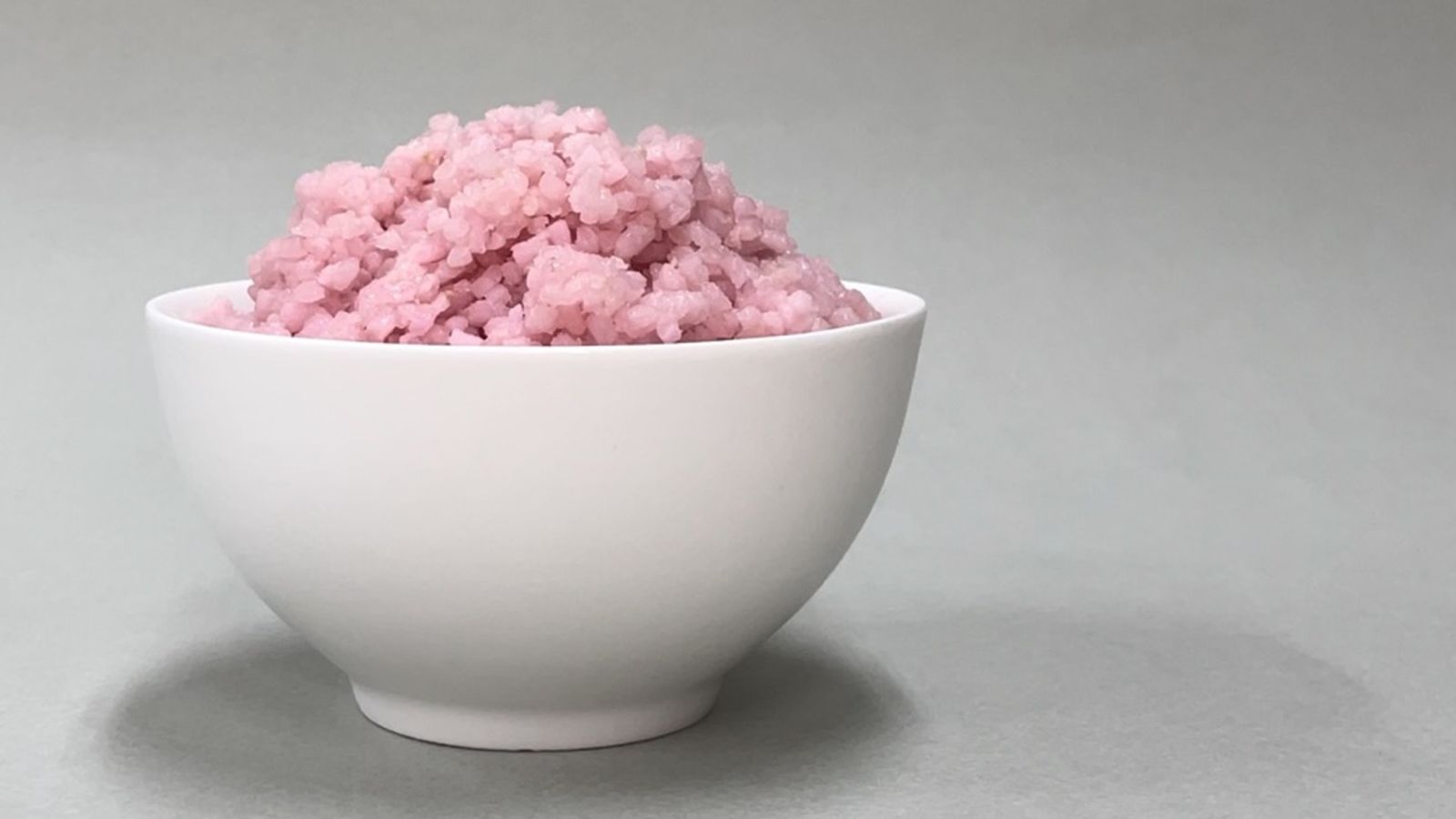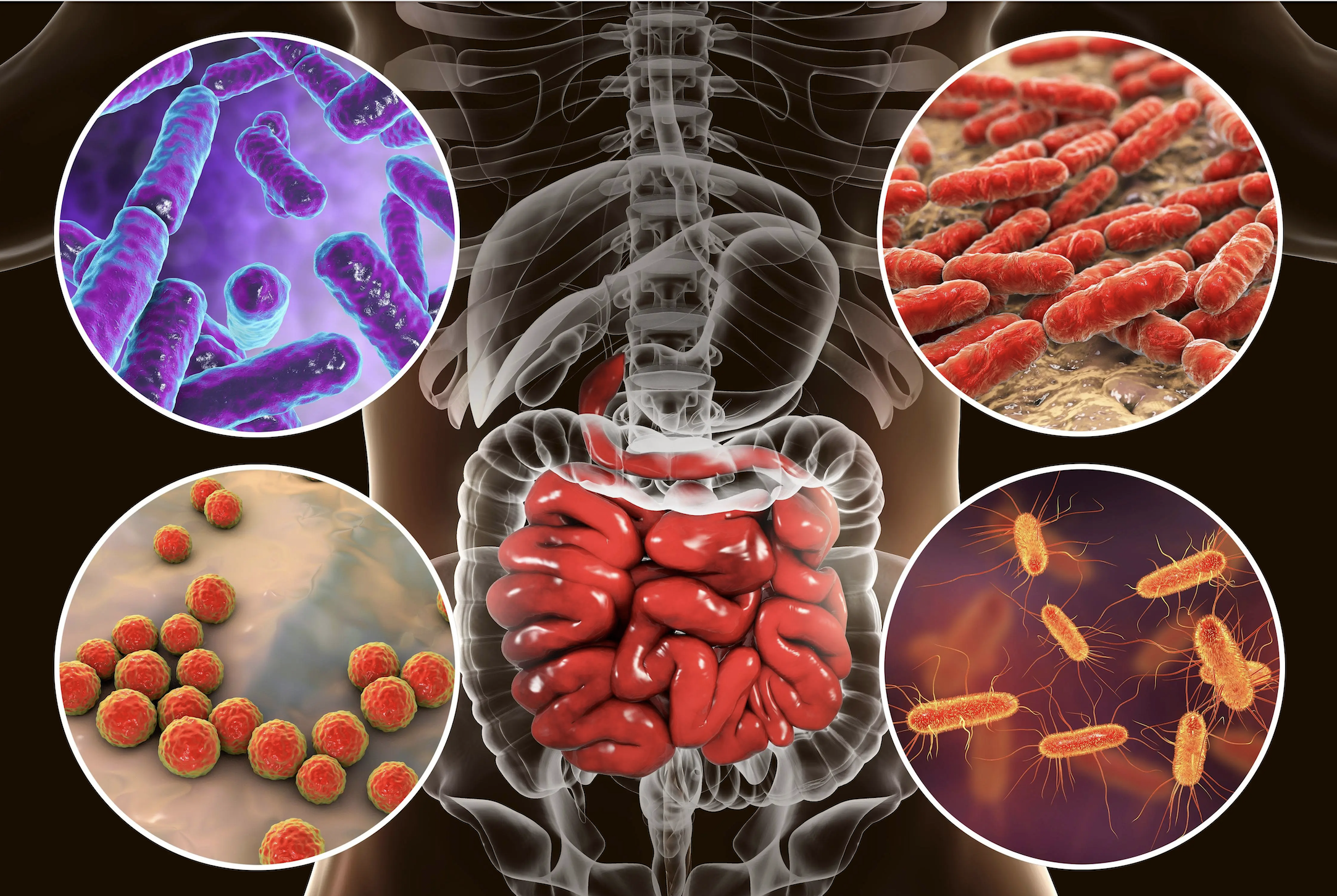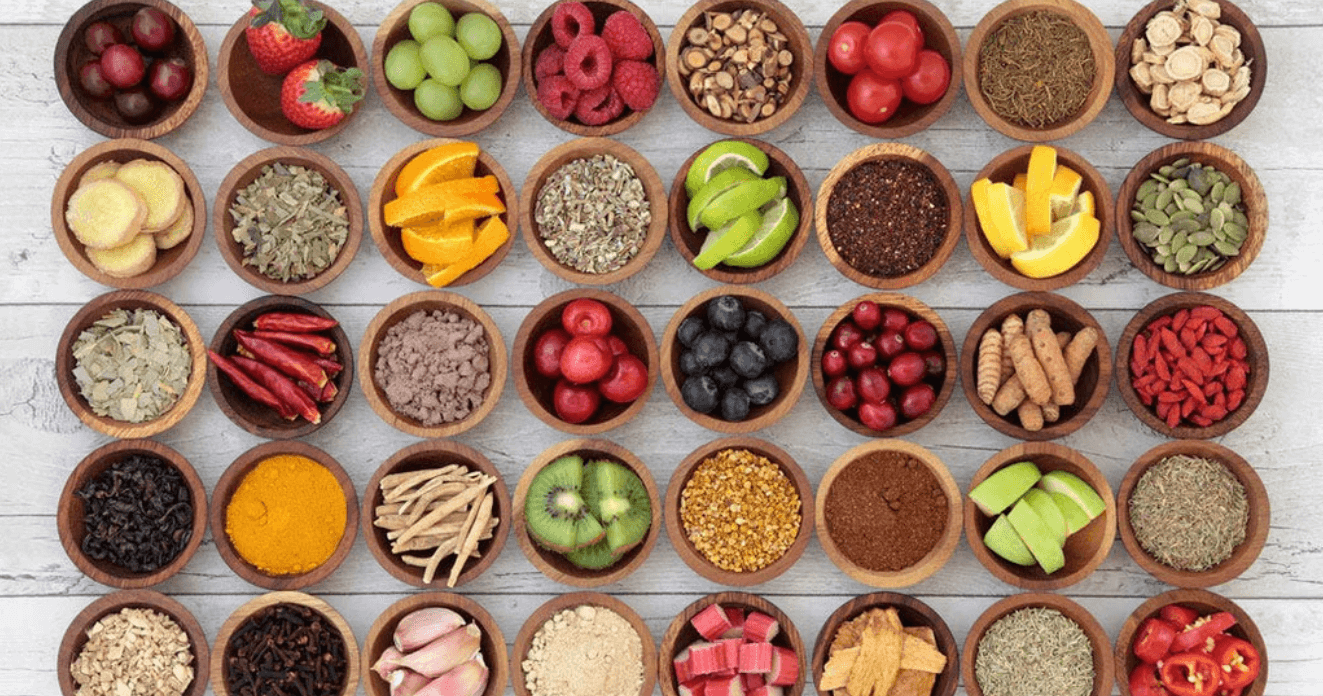Beefing Up the Future: How Cultured Beef Rice is Revolutionizing Food Production
02/04/2024
In the realm of culinary innovation, a groundbreaking development is shaking up the traditional food landscape. Picture this: rice grains infused with the essence of beef, offering a tantalizing blend of nutrition and flavor. It might sound like a concept straight out of a sci-fi novel, but thanks to pioneering research by scientists in South Korea, this vision is swiftly becoming a reality.

Imagine a world where the humble rice grain serves as the canvas for a nutritious and sustainable protein source. This is precisely what researchers at Yonsei University have achieved with their groundbreaking creation – cultured beef rice. By harnessing the power of biotechnology, they’ve successfully merged the worlds of meat and grains, paving the way for a culinary revolution with far-reaching implications.
At the heart of this innovation lies a simple yet ingenious process. The researchers coat rice grains with fish gelatine, creating a conducive environment for beef cells to thrive. Then, they introduce cow muscle and fat stem cells to the grains, allowing them to culture and develop into a hybrid rice infused with the essence of beef. The result? A nutrient-rich superfood that promises to redefine our approach to sustenance.
But what sets cultured beef rice apart from its conventional counterparts? For starters, it boasts an impressive nutritional profile, with 8% more protein and 7% more fat than regular rice. This nutritional boost could prove invaluable in addressing global challenges such as malnutrition and food insecurity, offering a viable solution for populations in need.
Yet, perhaps the most compelling aspect of cultured beef rice lies in its environmental impact. Traditional livestock farming is notorious for its resource-intensive nature, consuming vast amounts of water and land while emitting substantial greenhouse gases. In contrast, cultured beef rice represents a paradigm shift towards a more sustainable future. For every 100g of protein produced, hybrid rice emits less than 6.27kg of carbon dioxide, a fraction of the emissions generated by conventional beef production.
Moreover, the cost-effectiveness of cultured beef rice could revolutionize the economics of food production. With an estimated cost of just £1.77 ($2.23) per kilogram, it offers a more affordable alternative to traditional beef, which can cost six times as much. This accessibility could democratize access to nutritious protein sources, ensuring that no one is left behind in the quest for food security.
But the potential of cultured beef rice extends far beyond mere sustenance. Its versatility opens up a world of possibilities, from addressing food shortages during crises to providing sustenance for astronauts on long-duration space missions. Indeed, the researchers envision a future where hybrid rice serves as a cornerstone of global food security, offering a resilient and sustainable solution to the challenges of the 21st century
However, as with any technological advancement, there are questions and challenges to be addressed. Public acceptance of lab-developed foods like cultured beef rice remains uncertain, and further research is needed to ensure its safety and efficacy. Yet, the potential benefits far outweigh the risks, and with continued innovation and collaboration, we can unlock the full potential of this culinary marvel.
In conclusion, cultured beef rice represents a bold leap forward in the quest for a more sustainable and equitable food system. By merging the worlds of meat and grains, researchers have created a superfood that promises to nourish both body and soul while safeguarding the health of our planet. As we embark on this culinary journey, let us embrace the possibilities of the future and savor the taste of progress.
Unlocking the Power of Your Gut: Insights from Scientist Tim Spector
06/15/2022
In the bustling world of nutrition science, where fad diets come and go like passing clouds, one voice stands out amidst the noise. Meet Tim Spector, a scientist on a mission to revolutionize the way we think about food. His mantra? “Go with your gut.” But what does that really mean, and why should we pay attention?

For years, Spector has delved deep into the intricate world of gut health, uncovering secrets that go far beyond mere sustenance. His journey began not with a groundbreaking discovery in a lab, but with a personal health scare. A mini-stroke at the peak of a mountain prompted him to reassess everything he thought he knew about healthy eating. From that pivotal moment, Spector embarked on a quest to understand the profound connection between our gut microbiome and our overall well-being.
At the heart of Spector’s philosophy lies the concept of diversity. Not content with restrictive diets that shun entire food groups, he advocates for a rich tapestry of flavors and nutrients on our plates. Imagine a kitchen brimming with life – kefir grains, sourdough mother, homemade kimchi, and an array of colorful vegetables. Spector’s approach emphasizes incorporating at least 30 different plants a week, from nuts and seeds to pulses and whole grains, alongside starchy staples like potatoes or rice. Why? Because diversity cultivates a healthy microbiome, the bustling community of microorganisms residing in our gut.
But why is this microbial menagerie so crucial? According to Spector, it’s not just about digestion. These tiny inhabitants play a vital role in regulating our immune systems, tweaking our brain chemistry, and even influencing our susceptibility to diseases like Covid-19. Yes, you read that right – your gut health might just hold the key to weathering the storm of a global pandemic.
Spector’s groundbreaking research has shattered old paradigms, revealing the profound impact of gut microbes on our metabolism and responses to food. Gone are the days of one-size-fits-all diets; Spector champions a personalized approach based on understanding our unique biological makeup. Through tools like continuous glucose monitoring and microbiome analysis, he offers individuals the chance to tailor their diets to suit their bodies’ needs, unlocking a world of possibilities for optimal health.
But it’s not just about physical well-being. Spector’s work has also shed light on the intimate connection between gut health and mental health. Studies suggest that our gut microbiome may influence our mood and even our risk of depression. By nourishing our “inner garden” with a diverse array of plant-based foods and fermented delights, we can support not just our bodies, but our minds too.
So, how can we put Spector’s wisdom into practice in our own lives? It starts with embracing the bounty of nature – filling our plates with vibrant fruits and vegetables, savoring the richness of whole grains and nuts, and indulging in the occasional treat of dark chocolate. Forget processed foods and fad diets; Spector advocates for a return to simplicity, celebrating the abundance of nutrients hidden within whole, minimally processed foods.
But perhaps the most profound lesson we can learn from Spector is this: listen to your body. Pay attention to how different foods make you feel, and trust your gut – quite literally. After all, as Spector himself discovered, sometimes the greatest insights come not from textbooks or lab experiments, but from the whispers of our own bodies.
In a world where we’re bombarded with conflicting nutritional advice, Tim Spector’s message is refreshingly clear: go with your gut. So, the next time you sit down to a meal, remember the power that lies within – and savor every bite, knowing that you’re nourishing not just your body, but your soul.
Embracing the Microbiome Revolution: How Fermentation is Transforming Our Perception of Bacteria in 2022
02/17/2022
In 2022, a paradigm shift occurred in our perception of bacteria, transforming them from adversaries to allies in health, sustainability, and innovation. The microbiome revolution, spotlighting the diverse microbial communities within us, propelled fermentation as a transformative force in food, beauty, and biotechnology. This shift heralds a brighter, more sustainable future.

In a world where bacteria have long been associated with sickness and disease, 2022 marks a pivotal moment in our understanding and appreciation of these tiny organisms. From the depths of our digestive systems to the shelves of our cosmetics and kitchen pantries, bacteria are undergoing a renaissance, shedding their negative connotations and emerging as heroes of health, sustainability, and innovation.
The microbiome, the diverse community of microorganisms that inhabit our bodies, has captured the spotlight in recent years. Once relegated to the realm of scientific jargon, the microbiome has now become a household term, captivating the curiosity of health enthusiasts and researchers alike. We now understand that these microscopic inhabitants play a crucial role in our overall well-being, from digestion to immune function.
Central to the microbiome revolution is the process of fermentation. Once seen as a mysterious alchemical process reserved for pickles and sauerkraut, fermentation has emerged as a powerful tool for transforming our relationship with food and beauty products. At the heart of fermentation are bacteria, which consume sugars and water, producing a myriad of beneficial byproducts that enhance flavor, texture, and nutritional content.
But the benefits of fermentation extend far beyond the kitchen. Researchers have discovered that consuming fermented foods can lead to increased microbiome diversity, which in turn may support weight management and reduce the risk of chronic diseases such as diabetes and cancer. This revelation has sparked a culinary renaissance, with consumers eagerly incorporating fermented foods into their diets and food manufacturers innovating with new products enriched with beneficial bacteria.
In the realm of cosmetics, bacteria are also making their mark. Cosmetic brands have tapped into the power of fermentation to create a new generation of beauty products that harness the benefits of probiotics and fermented ingredients. By allowing microorganisms to proliferate, these products promise to deliver higher concentrations of nutrients and antioxidants, offering a natural solution for healthier, more radiant skin.
The rise of fermented beauty products is not merely a passing trend but a reflection of a broader shift towards holistic, sustainable approaches to skincare. As consumers become increasingly conscious of the ingredients in their personal care products, fermented beauty offers a natural and eco-friendly alternative that aligns with their values.
But the microbiome revolution extends beyond the realms of food and beauty. Bacteria are also driving innovations in biotechnology, with researchers exploring their potential to tackle pressing environmental challenges. From converting greenhouse gases into raw materials for consumer goods to developing antibacterial agents that could replace conventional detergents and hand sanitizers, bacteria are proving to be versatile allies in the quest for a more sustainable future.
In Quebec, researchers are pioneering the development of bacteria-produced molecules that have the potential to revolutionize hygiene products and combat antibiotic resistance. This groundbreaking research highlights the transformative power of bacteria and underscores the importance of harnessing their potential for the greater good.
BAs we navigate the complexities of the modern world, it is clear that bacteria are not the enemy but rather invaluable allies in our quest for health, sustainability, and innovation. By embracing the microbiome revolution and harnessing the power of fermentation, we can unlock new possibilities for improving our lives and preserving the planet for future generations.
In 2022, let us celebrate the humble bacterium for its contributions to our well-being and embrace the transformative potential of the microbiome revolution. From our plates to our skincare routines, bacteria are leading the way towards a brighter, more sustainable future.
So let us rise to the occasion, let us heed the call of the report, and let us forge a path towards a future free from the shackles of plastic pollution. The time for action is now, for the United States, and indeed the world, stands at a crossroads, with the fate of our planet hanging in the balance.
Unlocking the Power of Polyphenols: Nature’s Secret Weapon for Health
10/08/2021
Polyphenols, abundant in plant foods, offer diverse health benefits. Acting as antioxidants, they combat oxidative stress, potentially preventing diseases like cancer and cardiovascular issues. Found in fruits, vegetables, tea, and dark chocolate, polyphenols promote overall well-being. Embracing a polyphenol-rich diet fosters health, connecting us to nature’s wisdom and bounty.

In the vibrant tapestry of nature’s bounty, there exists a hidden treasure trove of compounds that hold the key to unlocking our potential for vibrant health and well-being. Among these jewels of the plant kingdom are polyphenols – versatile and potent defenders that offer a multitude of benefits for both body and mind.
Polyphenols, as their name suggests, are multifaceted compounds found abundantly in various plant foods, including fruits, vegetables, beans, cereals, and soy. Within this diverse family of phytochemicals lie flavonoids, phenolic acids, lignans, and stilbenes, each with its own unique set of properties and health-promoting abilities. With over 8,000 different types identified thus far, polyphenols offer a vast array of potential benefits waiting to be explored.
One of the most remarkable qualities of polyphenols is their role as antioxidants in the body. Like valiant knights guarding a castle, these compounds tirelessly combat the onslaught of environmental stressors, ranging from harmful UV rays to insidious pollution. By neutralizing free radicals and reducing oxidative damage, polyphenols help safeguard our cells and tissues from premature aging and disease.
But the benefits of polyphenols extend far beyond their antioxidant prowess. Emerging research suggests that diets rich in polyphenols may confer protection against a host of modern-day maladies, including certain cancers, cardiovascular diseases, diabetes, and neurodegenerative disorders. With each mouthful of polyphenol-rich foods, we fortify our bodies against the ravages of illness and pave the way for a healthier, more vibrant future.
So, where can we find these nutritional powerhouses? The answer lies in the colorful array of fruits and vegetables that grace our tables, from the succulent sweetness of berries to the verdant crunch of spinach. Blueberries, cherries, strawberries, and blackberries are just a few examples of polyphenol-rich delights waiting to be savored. And let’s not forget the comforting warmth of a steaming cup of green tea or the indulgent pleasure of dark chocolate – both of which boast generous doses of polyphenolic goodness.
Despite their potent benefits, polyphenols remain humble heroes, often overlooked on nutrition labels and in dietary discussions. Yet, as we delve deeper into the science of nutrition, it becomes increasingly clear that these unassuming compounds play a vital role in promoting optimal health and vitality. By embracing a diet rich in polyphenol-containing foods, we harness the power of nature to support our well-being from the inside out.
As the summer sun beckons us to savor the bounty of the season, now is the perfect time to indulge in the rich tapestry of polyphenol-rich foods that nature has to offer. Whether you’re tossing fresh berries into a vibrant salad, brewing a refreshing pitcher of iced green tea, or treating yourself to a square of antioxidant-rich dark chocolate, every bite and sip brings you one step closer to harnessing the full potential of polyphenols.
In the hustle and bustle of modern life, it’s easy to overlook the simple pleasures and profound wisdom that nature provides. But in the quiet corners of our kitchens and gardens, the humble polyphenol reminds us of the profound connection between the health of our bodies and the bounty of the earth. So let us raise our glasses – or perhaps our teacups – to the remarkable power of polyphenols and the abundant gifts of nature that nourish us each day.
Unveiling the Toxic Truth: How American Food is Hurting Us All
08/12/2021
American food, convenient yet perilous, harbors hidden dangers like glyphosate, exemplified by Monsanto’s Roundup. Unlike Europe, the US prioritizes profit over precaution, exposing consumers to harmful chemicals. Healthcare costs soar as illnesses rise, linked to toxic food. Regenerative agriculture offers hope, emphasizing sustainability, health, and environmental stewardship for future generations.

In the bustling aisles of supermarkets and the sizzle of fast-food joints, Americans indulge in a culinary landscape that’s as diverse as it is convenient. Yet, beyond the tempting flavors and enticing convenience lies a darker truth: American food is quietly wounding us all. From the humble chicken to the luscious tomatoes, our plates are laden with more than just sustenance; they carry a payload of hidden dangers that threaten our health and well-being.
The recent uproar surrounding glyphosate, the key ingredient in Monsanto’s Roundup, serves as a sobering reminder of the perils lurking in our food supply. As lawsuits against Bayer, Monsanto’s parent company, mount over allegations linking glyphosate to cancer, it’s evident that we’re merely scratching the surface of a much larger issue. Behind the glossy packaging and reassuring labels lie a myriad of potentially harmful chemicals, largely unchecked by a regulatory system that prioritizes profit over precaution.
Indeed, the American approach to food regulation is a stark departure from that of its counterparts in Europe and elsewhere. While other developed nations adhere to the precautionary principle, erring on the side of safety by banning hazardous substances until proven harmless, the American system operates in reverse. Here, chemicals are innocent until proven guilty, leaving consumers unwittingly exposed to a toxic cocktail of pesticides, herbicides, and other synthetic additives.
But the consequences of this laissez-faire attitude towards food safety extend far beyond the courtroom drama of corporate giants. They manifest in the soaring healthcare costs that burden the nation to the tune of $3.5 trillion annually, juxtaposed against a population that remains inexplicably sicker than its peers in other industrialized nations. The correlation is undeniable: the food we eat is making us ill.
Consider the plight of the honeybee, once a ubiquitous symbol of summer’s bounty, now vanishing at an alarming rate due to exposure to neonicotinoid pesticides. Their decline foreshadows a broader ecological catastrophe, as our relentless assault on nature’s delicate balance reverberates through ecosystems far and wide. The same chemicals that decimate pests also wreak havoc on beneficial organisms, disrupting soil microbiomes and polluting waterways with alarming impunity.
But perhaps the most insidious aspect of our toxic food system lies not in its immediate effects but in its long-term consequences. Chemical residues leach into groundwater, contaminating drinking supplies and posing a silent threat to public health. Atrazine, a notorious weedkiller banned in Switzerland yet prevalent in American agriculture, has been linked to a litany of health risks, including cancer and developmental defects. The price of our culinary convenience is paid in compromised immune systems and diminished vitality.
Yet, amidst this gloomy narrative, a glimmer of hope emerges. The burgeoning field of regenerative agriculture offers a blueprint for a more sustainable and health-conscious food system. By eschewing synthetic chemicals in favor of organic practices and embracing the principles of soil health and biodiversity, farmers can nurture resilient ecosystems that thrive without the need for toxic inputs.
At the forefront of this movement is the Rodale Institute, whose pioneering research has paved the way for a new standard of farming: Regenerative Organic Certification. This holistic approach to agriculture not only prioritizes soil health and biodiversity but also encompasses animal welfare and fair labor practices. It’s a vision of farming that transcends mere sustenance, aiming to nourish both body and soul while safeguarding the planet for future generations.
In the end, the choice is ours to make. We can continue down the path of industrialized agriculture, perpetuating a cycle of ecological degradation and human suffering. Or we can embrace a more enlightened approach, one that recognizes the interconnectedness of food, health, and the environment. The time for change is now. Our plates, and our planet, depend on it.
